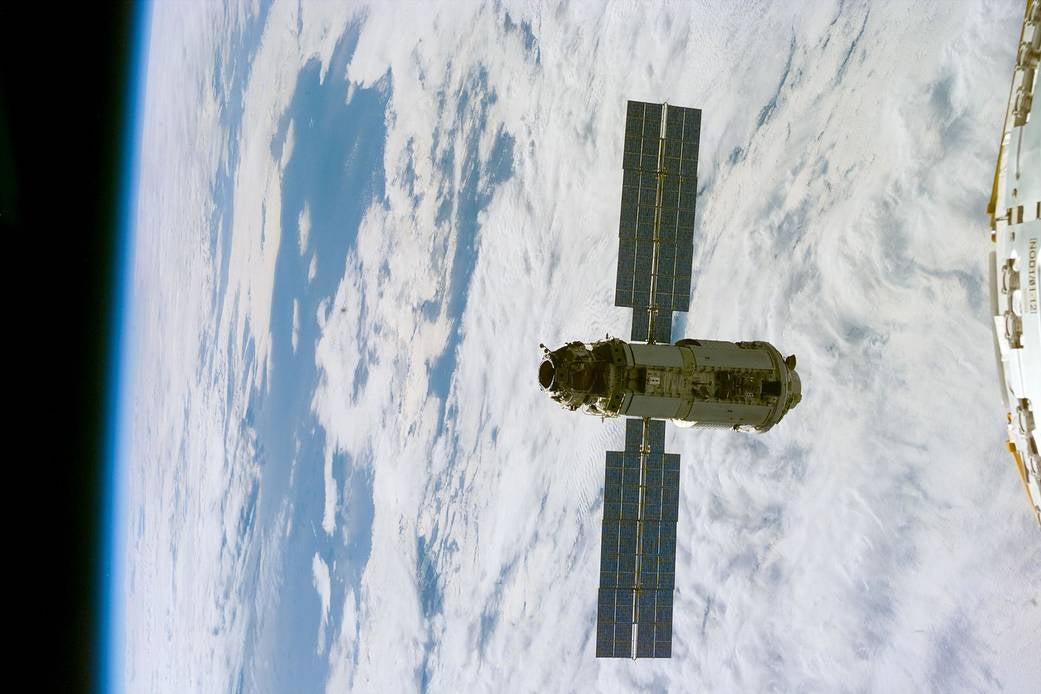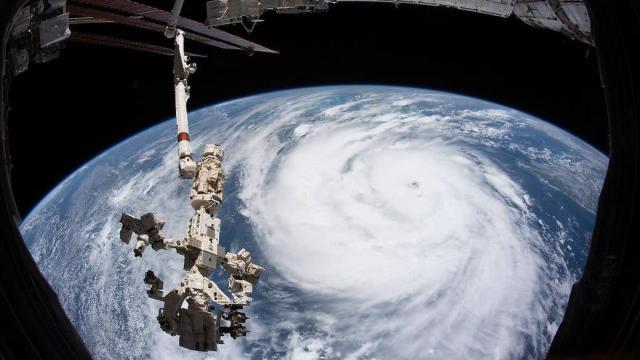Newly detected cracks in an old Russian ISS module could worsen over time, according to a senior Russian space official. It’s the latest in a series of setbacks as Russia considers its future with the orbital outpost.
“Superficial fissures have been found in some places on the Zarya module,” Vladimir Solovyov, flight director of the Russian segment of the ISS, told RIA news agency, as Reuters reports. “This is bad and suggests that the fissures will begin to spread over time.”
It’s unknown if the cracks, detected by Russian cosmonauts, are currently leaking oxygen to space. Zarya, or Functional Cargo Block (FGB), was the first section of the ISS to reach orbit, having launched on November 20, 1998. The module measures 12.6 metres long and 4.1 metres wide.

Solovyov has previously warned about the ageing state of the Russian segment, saying some components are in dire need of replacement and that Roscosmos should expect an “avalanche” of busted equipment after 2025. A former Soviet cosmonaut, Solovyov spent nearly 362 days in space during his career and is currently the chief engineer for the Russian rocket company Energia.
Roscosmos is already attending to a steady stream of technical issues having to do with the ISS.
The Russian segment has been like Swiss cheese, having sprouted a series of pesky — but not life threatening — air leaks. A minor air leak dating back to September 2019 was finally patched in March 2021, but another leak appeared in the Zvezda service module this past July. In August 2018, an air leak was traced to the Soyuz MS-09 spacecraft docked to the ISS, with Russian officials attributing the cause to a manufacturing flaw or sabotage (this story got a bit messy recently, as Russian media accused a NASA astronaut of deliberately making the hole).
A busted toilet and a glitchy oxygen supply system are among some other recent problems inside the Russian segment. Not to mention the newly arrived Nauka module, which inadvertently caused the ISS to spin 1.5 times after its thrusters fired unexpectedly.
Russian deputy prime minister Yuri Borisov has gone on record saying the ISS is now well past its best-before date and that its current condition “leaves much to be desired,” as the RIA news agency reported in April. Russia’s future with the ISS is unclear, as the country has threatened to leave the international collaboration by 2025. Like China, Russia could build its own space station. In fact, and as the BBC reports, the first core module of a new Russian space station is already in development, according to Dmitry Rogozin, head of Roscosmos.
I’m not a sentimental guy, but I think it’s a shame that the Russians might leave. Space is one of the few places where Americans and Russians have meaningfully collaborated over the years, despite political disagreements. Given the sorry state of the Russian segment, however, this may already be a foregone conclusion.
